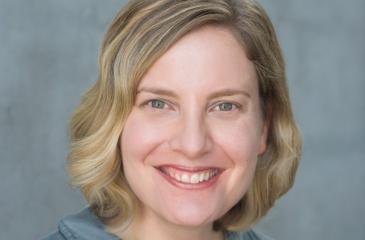The Association of SP Educators (ASPE) is an international organization of educators dedicated to human simulation through promoting best practices; disseminating research and scholarship in the field of SP methodology; advancing professional knowledge and skills, and elevating the profession’s credibility and expertise; and actively engaging with members, educators, and learners beyond borders. The term SP originally stood for simulated patient after neurologist Howard Barrows coined the phrase when he discovered that a lay person could be trained to simulate illness and give feedback to medical students. “SP'' has since evolved to encompass “standardized” or “simulated” and “patient” or “participant” in order to be more inclusive of the many health fields utilizing human simulation and hybrid modalities such as task trainers and manikins. Health care simulation teams around the world including the M Simulation team utilize SP methodology to train learners with the ultimate goal of improved patient safety and outcomes.
Created in 2001, ASPE has worked to grow the profession and be at the forefront of innovation in simulation education, modeling social justice and embracing inclusivity. Lou Clark, PhD, MFA, executive director for M Simulation, has been a member since 2007. In fall of 2022, Clark was elected as ASPE president; she served as president-elect in 2023 and assumed the role of ASPE president as of January 2024 through December 2025.
“This organization has given me so much in terms of professional development, mentoring, and collaboration opportunities with colleagues from around the United States and the world. It is my honor to serve ASPE and our collective membership in furthering SP methodology and our SP education profession,” said Clark.
Increasing the Visibility of SP Educators
“Our work is often hidden. SPs interact with learners, but what is much less seen is that there's a whole profession of people who use many kinds of skills to coach SPs which includes advocating for their safety—both physical and psychological. That's really what this organization is all about— providing resources for SP educators and SPs in order to intentionally advance health care education in service of patient care,” said Clark.
Being an advocate for simulation education is a responsibility Clark takes to heart. She says, “Stepping into the role of president, I am focused on collaboratively raising up the profession as a whole. I'm honored to amplify the exciting work of many simulation programs and ASPE members around the world, including M Simulation.”
ASPE members published a Standards of Best Practices in 2017, which they are revising and publishing within the next year. The standards ensure the growth, integrity, and safe application of SP-based education practices. Clark is participating with the committee leading this effort. She also seeks to provide compensation guidance for simulation professionals in the United States, which does not yet exist. Clark is also working with leaders from other simulation associations as part of a newly formed work group, where they will serve as representatives to the U.S. Department of Labor. They will develop submission criteria and submit a proposal to add the following occupations: health care simulation operations specialist, SP educator, and SP to the U.S. Bureau of Labor Statistics standard occupational classification.
Key Initiatives
During her presidency, Clark is focused on creating more opportunities for leadership development and mentoring for newer to mid-career simulation professionals. The field of simulation is over 60 years old and many senior leaders are soon to retire. Having mentoring opportunities is crucial to advancing the next generation of SP educators. Clark is collaborating with past ASPE presidents and SP educator veterans to create new pre-conference workshops on leadership topics for the annual ASPE meeting in Vancouver happening this summer for simulation professionals to gain knowledge and skills from top-level industry experts.
Serving as a resource to the ASPE board and the organization’s 1,000 members is also at the top of Clark’s list.
“ASPE has been my professional home for over 17 years. I've had exceptional mentoring through this organization. My goal is to continue helping this organization do what it's done so well for over 20 years, which is create a welcoming and inclusive high quality learning environment for everyone who's involved,” said Clark.



